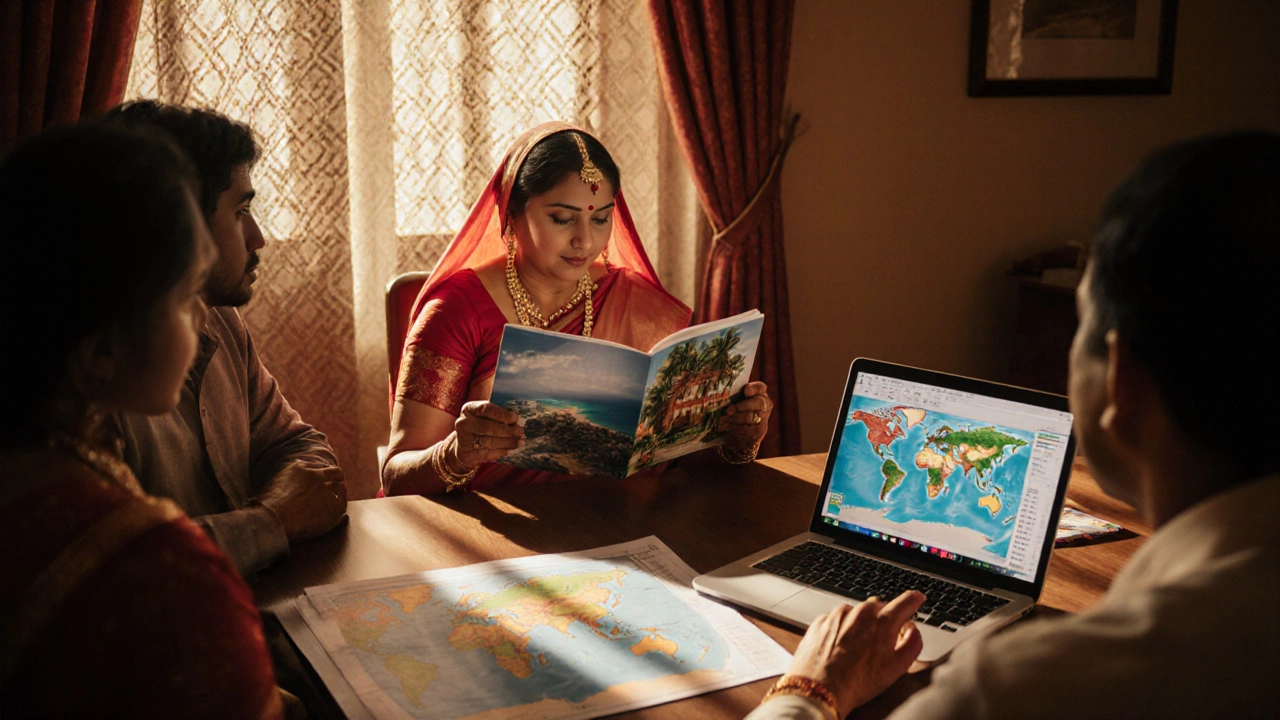SEARCH
Wedding Family Responsibilities: Roles, Traditions, and Planning Made Simple
When navigating wedding family responsibilities, the set of duties and expectations that family members take on during a marriage ceremony. Also known as family wedding duties, it covers everything from budgeting and guest management to preserving cultural rituals.
One of the first things to sort out is family roles, the specific tasks assigned to parents, siblings, and extended relatives. In many Indian weddings, the bride’s family handles the mehndi and sangeet, while the groom’s side takes charge of the baraat and reception logistics. Understanding who does what prevents overlap and keeps the event running smoothly. This division of labor also ties directly into cultural traditions, the customs that shape each ceremony’s flow and meaning. When family roles respect these traditions, the celebration feels authentic and inclusive.
Budget planning is another massive piece of the puzzle. wedding family responsibilities often include pooling resources, setting spending caps, and tracking expenses across venues, catering, and attire. Clear communication about financial limits helps avoid surprise costs that can strain relationships. For example, assigning a trusted cousin as the budget chair creates a single point of accountability and makes it easier to share updates with the whole clan.
How Responsibilities Shape the Wedding Experience
Event logistics, such as transportation, accommodation, and timeline coordination, fall under the umbrella of event management, the practical side of turning plans into reality. When the elder aunt books the guest house and the younger brother arranges the DJ schedule, each task supports the larger goal of a seamless ceremony. This relationship—family roles influencing event management—creates a chain reaction: organized logistics free up emotional energy for heartfelt moments.
Generational expectations also play a big part. Older relatives might insist on traditional rituals, while younger members push for modern twists like a photo booth or livestream. Balancing these viewpoints requires a respectful dialogue that acknowledges heritage while embracing innovation. This balancing act demonstrates how cultural traditions and contemporary preferences can coexist, enriching the celebration for everyone involved.
Support networks beyond the immediate family—friends, colleagues, and wedding planners—often step in to fill gaps. Delegating tasks like décor setup or vendor negotiations to trusted outsiders can lighten the load on relatives and reduce stress. This delegation shows a clear semantic link: family responsibilities enable external support to enhance the overall event quality.
Communication tools are essential for keeping everyone on the same page. A shared spreadsheet, group chat, or wedding app can track who’s responsible for each item, from cake flavors to seating charts. When each family member updates their progress, the collective picture stays clear, preventing missteps and last‑minute scrambles. This demonstrates the triple: wedding family responsibilities require effective communication, which in turn supports smooth execution.
In practice, start by mapping out all required tasks, then match each to a family member whose strengths align—whether that’s the tech‑savvy cousin handling digital invites or the culinary‑enthusiast aunt managing the menu tasting. This matching process respects individual skills and reinforces the idea that family roles are not just duties but opportunities to contribute meaningfully.
By the time the big day arrives, the combined effort of clear roles, thoughtful budgeting, and respect for tradition creates a wedding that feels both personal and polished. Below, you’ll find articles that dive deeper into each of these areas—budget breakdowns, cultural ceremony guides, role‑assignment worksheets, and more—so you can fine‑tune your own planning process and enjoy a stress‑free celebration.

Traditional Honeymoon Planning: Who Takes the Lead?
Explore who traditionally plans a honeymoon, from bride's mother to groom, and learn modern tips to share the duties and avoid common pitfalls.
Continue reading